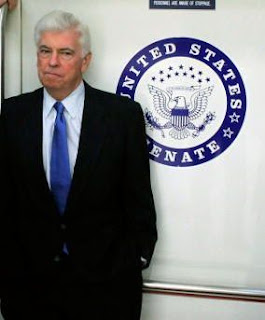
For reasons not entirely clear to me, it appears that today the
New York Times decided to run a bunch of stories about picking college majors and the value of liberal education.
Thus we have David Brooks, in yet another of his seemingly unendless attempts to produce a
World-Is-Flat- esque metaphor that will finally bring him the bestseller status you just know he craves, argues that
the purpose of education is to become acquainted with something Brooks calls The Big Shaggy. Umm, yeah. Well put, David.
In a more sensible vein, we find Stanley Fish reviewing
a trio of new books calling for a return to classical ideals of education, including
a new tome (previewed
here) by Martha Nussbaum, who is
still smarting from being unceremoniously dumped by Cass Sunstein. Basically, Nussbaum thinks that we are "downgrading" the humanities at the expense of "science and technology" and "applied skills suited to profit making."
This sort of Chicken Little view that the death of liberal arts education is imminent strikes me as palpably absurd. In no particular order, my thoughts:
(1) A lot more degrees are awarded. As you can see here,
education has been a major growth industry for over a century. In 1980, the year of my birth, under 1 million bachelor's degrees were conferred in the US per year; today it's more like 1.6 million. As the above chart shows, this means that there are more people majoring in social sciences and history (admittedly not a perfect proxy for "the humanities") than ever before. So, it's not like people with humanities degrees are an endangered species.
(2) I think that focusing solely on what students choose to major in is deceptive. Of course, people have their future careers on their mind when they are choosing their majors, but it's not like that's all they do while they're in college. Most universities do have breadth requirements that require students to take courses outside their main field of specialization. And for lots of students, the first year or two of college is mainly about trying out different fields and trying to find something that you're good at and that you like. For every student who is awakened to the republic of letters during their undergrad career, there are probably three who were bored silly throughout a mandatory English 101 and who couldn't wait to move on to classes that they were more interested in. For the most part, students who have been forced to take classes they don't want to all through primary and secondary school want to move on to classes they're interested in. And if what they're interested in is the wonders of science, or, yes, the skills needed to make money in a competitive global environment, there's nothing wrong with that in my opinion. I also think that it's worth pointing out that lots of students don't just barely fulfill their breadth requirements - lots also take a variety of classes, some far outside their major field. It's not that unusual to find some science majors in mid-level humanities classes - but those who are there are there because they want to be there, not because they're being forced.
(3) As I look at the list of what people major in above, I'm hard put to say where we ought to cut back. I guess for Brooks, Fish, Nussbaum and company, their major concern is that we have too many business majors. So maybe the real subtext is ideological hostility to business. But, having taken some business school classes in law school, and having as a lawyer got some sense (though removed one degree) of how business operates, the fact of the matter is that business is really complex, requires not just knowledge, but judgment, and is, in its own way, just as intellectually demanding and intellectually stimulating as anything I did in the humanities.
Take this ridiculous advice from Brooks:
"Studying the humanities will give you a familiarity with the language of emotion. In an information economy, many people have the ability to produce a technical innovation: a new MP3 player. Very few people have the ability to create a great brand: the iPod. Branding involves the location and arousal of affection, and you can’t do it unless you are conversant in the language of romance. "
There's an entire branch of business education dedicated to creating a great brand: it's called Marketing. What is it that Brooks thinks that Marketing classes teach? The fact of the matter is that a Marketing major will have studied "the location and arousal of affection" in order to create a great brand, but will also probably have studied successful and unsuccessful past attempts at branding, will know something about the practical constraints a company faces in attempting to create a great brand, and will have the tools he or she needs to execute on a branding strategy. I agree that having studied something besides Marketing will probably be important to thinking up fresh and new ideas, but I think this idea that studying A will make you better at B is stupid. More likely if you study A, you'll know a lot about A, and can use a little of that at B, whereas if you study B, you'll know a lot about B.
In order to demonstrate my phenomenal training in the humanities, let me offer up as Exhibit A
the most famous song about someone who is educated about every topic except the business he is actually engaged in. (4) Division of labour. Brooks is right that humanities teach reading and writing skills. Some people need these skills and always will. Others, not so much. Society benefits from having a wide variety of people with skills in a wide variety of areas. A world of nothing but humanity majors would be missing out on a lot of the benefits of modern life.
(5) Laying aside business, there are more social science and history degrees awarded than anything else. There are a ton of Psychology majors (in fact that number really surprised me). And there are more degrees awarded every year in the visual and performing arts than in computer and information science. I hardly think we need fewer educators, health care professionals, or engineers, so I find it hard to get upset about the number of degrees awarded in that field. And Biology and Biomedical Science is, to anyone who pays any attention to this sort of thing, probably the field of knowledge where human knowledge is expanding more exponentially than any other field right now, and this is going to have vast implications on our society's future. So I can hardly feel bad about that. The only plausible group of degrees that are disproportionately represented are business majors, but as I described above, I don't really take those concerns seriously.
(6) One more plug for business majors. Business is hugely important. Who do you think pays for museums and endowed chairs and whatnot?
 Scour the world, and you'll probably never find a schmaltzier statue than the statue of the Queen of Hearts and her Dodi erected by Mohamed Al-Fayed in the basement of Harrods in London. Of all the weird things to come from Diana's death, that was no doubt the weirdest.
Scour the world, and you'll probably never find a schmaltzier statue than the statue of the Queen of Hearts and her Dodi erected by Mohamed Al-Fayed in the basement of Harrods in London. Of all the weird things to come from Diana's death, that was no doubt the weirdest.

















